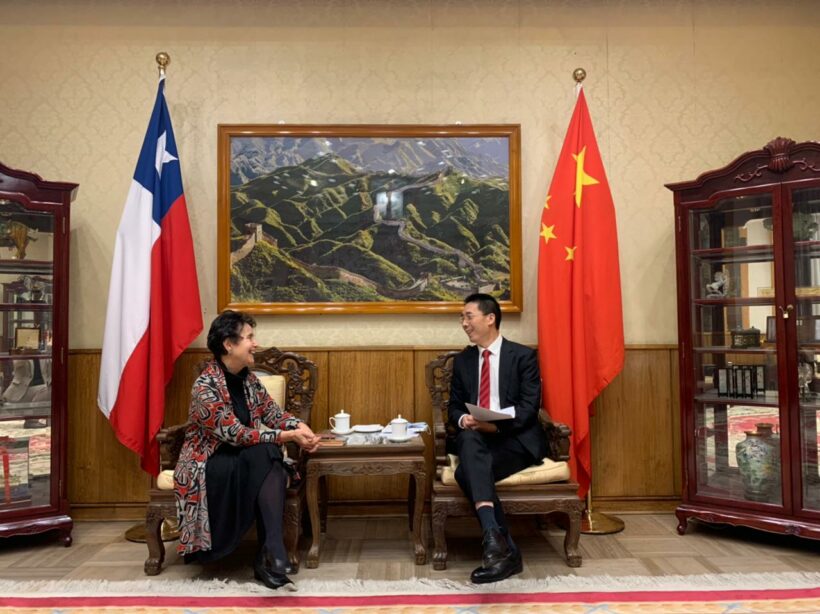This is the second part of the interview we had with the Chinese Ambassador to Chile, whom we had the opportunity to consult on the concept that his country has been coining of a common destiny for all humanity. In the coming days we will complete the interview by publishing his treatment of other issues.
Pressenza: Could you explain better to our audiences the concept to which your President Xi Jingping refers when he speaks of a Community of Shared Destinies and in what sense this can guide the possibilities of emerging from this crisis towards a better common future?
Ambassador: The Community of Shared Future for Humanity is one of the core concepts of Chinese diplomacy.
It was first formulated by our President Xi Jinping in March 2013. Since then, the President has explained it on multiple occasions and has enriched and developed the thought of Shared Future Communities for humanity.
This thought has had a strong echo in the international community and has been included many times in United Nations documents.
China believes that in the present time, in this era, different countries are linked, are interdependent, in a closer way than ever before. Many countries are not confined to the territory of one country, many challenges can no longer be faced by one country alone, and no country can close its doors and develop independently. Only when countries cooperate in solidarity can we effectively face the various challenges and risks, achieving both self-development and common development.
Based on this understanding of today’s world, President Xi Jinping will be proposing the concept of communities of shared future for mankind. He will be persisting in the common values of humanity, which include peace, development, equity, justice, democracy and freedom.
He also proposes to discard ideological prejudices and to do everything possible to make cooperation mechanisms more open and inclusive, with a look to ensure global peace and stability. In concrete terms, this vision encompasses the following five aspects:
Politically, in the face of counter-currents such as Cold War mentalities, the power politics of confrontation between blocs, we advocate mutual respect and consultation on an equal footing and follow a new path in inter-state relations, the path of dialogue rather than confrontation and partnership rather than alliance.
And on security, faced with the intertwining of conventional and non-conventional security threats, we advocate persisting in resolving disputes through dialogue and neutralising divergences through negotiations, dealing in a coordinated manner with conventional and non-conventional security threats and combating terrorism in all its manifestations.
And on the economic front, in the face of lacklustre economic growth and de-globalisation, we advocate joint efforts to overcome difficulties, promote trade and investment liberalisation and facilitation, and push economic globalisation towards development in which openness, inclusiveness, broad-based benefits, balance and “win-win” are at a higher level.
And culturally, in the face of the so-called “clash of civilisations”, we advocate respecting the diversity of the world’s civilisations and putting exchanges between them above their estrangement, mutual learning above their conflicts, and the coexistence of all of them above the mentality that some are superior to others.
Ecologically, in the face of increasingly frequent extreme weather, we advocate persevering in treating the environment in a friendly way and tackling climate change through collaboration, in order to properly protect the Earth, the home on which human existence depends.
In my view, building a community of shared future for humanity is the joint construction of a world of lasting peace, of universal security, of common prosperity, of openness and inclusiveness, and a world that is clean and beautiful.
This is at the root of the yearnings of the various countries of the world seeking development and advancement, and it is also the greatest common dividing factor of all peoples seeking a better world.
I want to emphasise that the joint construction of a shared future for humanity requires the joint efforts of all the countries of the world. Large countries have their obligations and small countries also have their responsibilities, and both are indispensable.
Only when all countries act and strive together can this Community of Shared Future of humankind become a reality.






